This post may contain affiliate links. You can view our affiliate disclosure here.
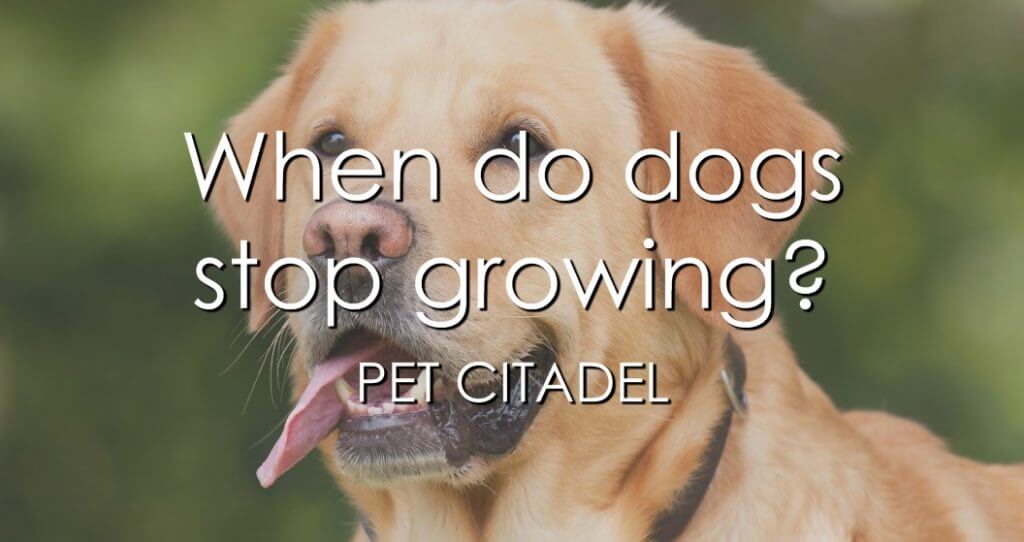
Many dog owners wish that their small puppy would stay small and cute forever, but it’s inevitable that they’ll grow up. Just like any other pet, dogs reach full maturity and eventually stop growing, and it happens quicker than in humans.
If you have a puppy, particularly a mixed breed puppy, you’ve likely wondered at some point: at what age will your dog stop growing? There isn’t a one-size-fits-all answer to this question, as it depends on the breed and other factors.
Below is a comprehensive guide on what you need to consider when determining when your dog will stop growing.
Let’s Start With Puppies
Puppies behave much the same way as other animals in the early stages of their lives: they are very fragile, delicate, and dependent on their mothers.
A puppy will open its eyes after two weeks, and after three weeks or so, it will begin to gain enhanced mobility.
By the time a puppy reaches 2 to 3 months of age, it starts to accumulate new experiences that can cause anxiety or nervousness. At this age, you should give your dog a lot of positive reinforcement so that it gains courage.
3 months to 6 months is the toddler age of your puppy. At this stage, your puppy will be more excitable and active, start chewing things and begin teething.
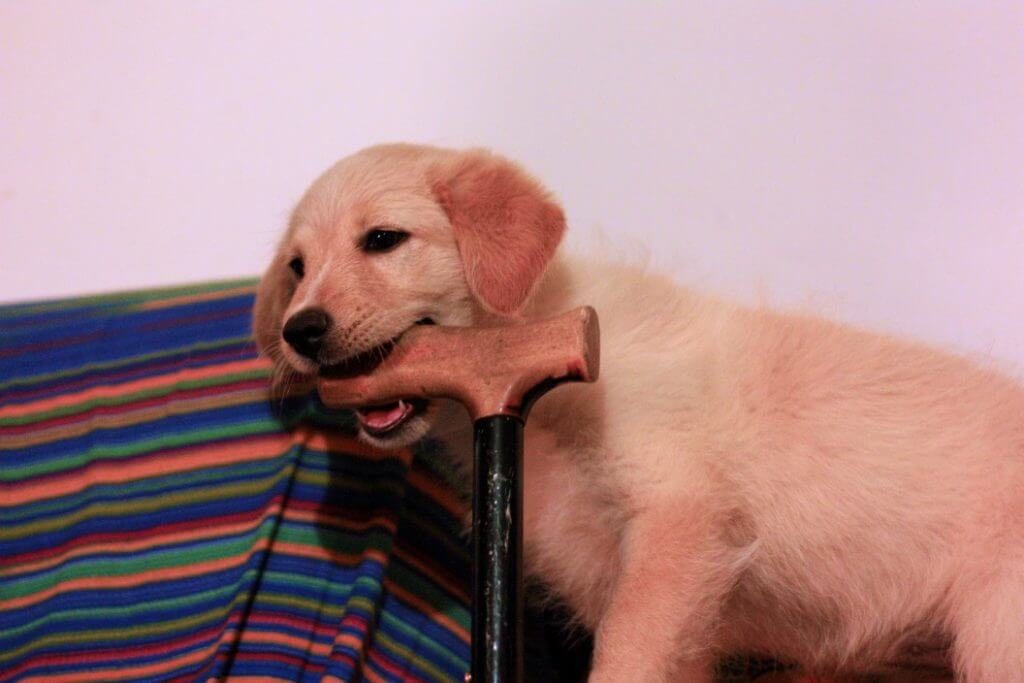
At 6 months to 12 months, your dog reaches the teenage phase; this is when it reaches the height of mischief and energy. In addition, your dog may become sexually mature and active at this age.
A dog will stop growing due to several factors which will affect their mental and physical growth.
Growth Rate Depends On Breed
As you might expect, different breeds of dog have different growth rates. This normally depends on their expected mature size when they’re fully grown.
At a certain age, your dog will reach mental maturity. Mental maturity is that age at which your dog will cease its tendency for recklessness. At this stage, your dog will generally stop its destructive behaviour and settle down into a more peaceful and relaxed state.
At what age do dogs stop growing?
Now we’ll give the general breakdown of the period needed by each dog breed to attain their fully grown size.
This includes the general timeline for a certain breed to reach an expected weight at a given age, to help you understand your dog’s development process.
Dog Size Classifications
Dogs are normally categorized into three distinct groups: small size, medium size, and large size.
Small Dogs

Some examples of small dog breeds include the Chihuahua and Yorkshire Terrier. Most of these breeds attain adulthood and full size after one year.
At the age of one year, small dogs will have multiplied their birth weight by at least 20, fully grown their adult coats, shed all their fur, and attained their full weight and height. In addition, they’ll mature emotionally and become sexually active.
However, some stockier breeds like the Chinese pug and Shih Tzu will stop growing a few months after the first year to allow their weight to match their size.
Medium Dogs
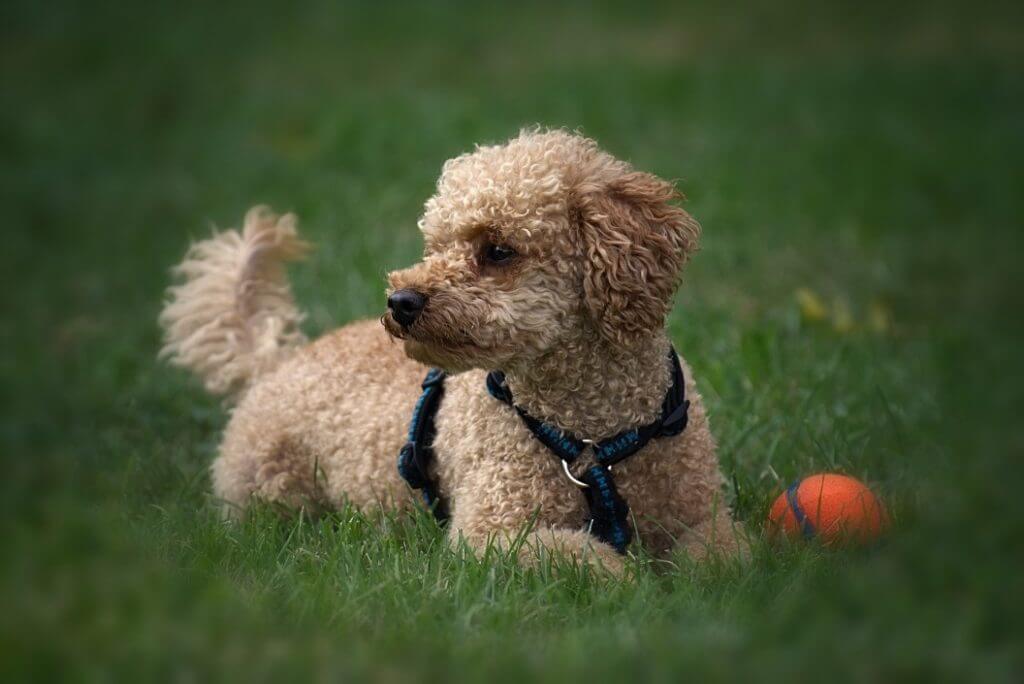
Some examples of medium-sized breeds include the Miniature Schnauzer, Beagle, Pit Bull, and Poodle. Medium dogs stop growing between the age of 12 months and 15 months.
It’s important to see your veterinarian regularly and feed your dog a balanced diet to ensure that they grow up properly into a healthy adult.
Medium dogs with stockier bodies normally take 18 months to stop growing. A good example to highlight differences in body type is to consider the Clumber Spaniel and Whippet – the Whippet has a much thinner build.
Other breeds that fall in this category are the Labrador and Border Collie.
Large Dogs
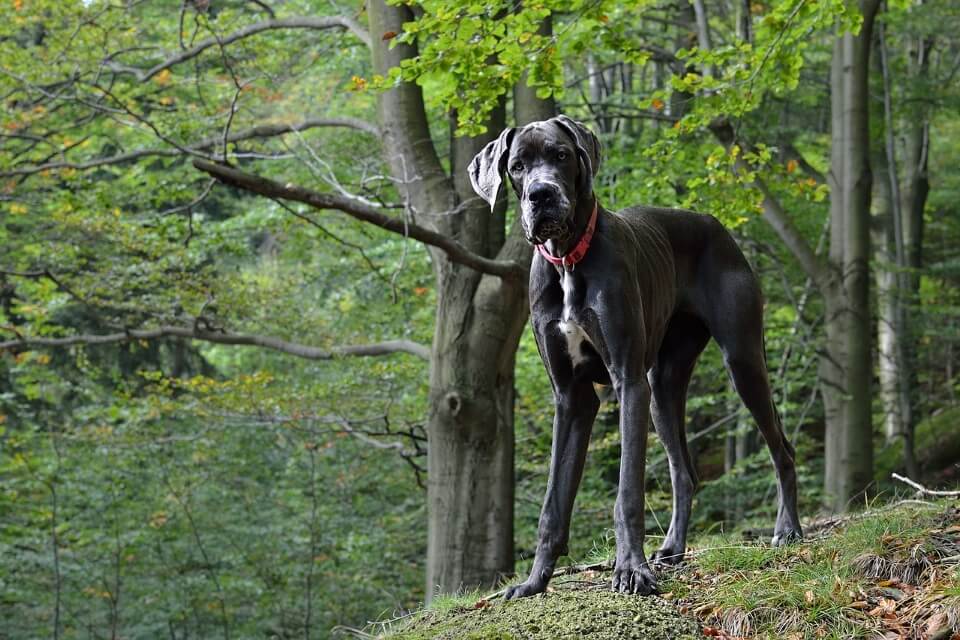
Some examples of large dog breeds include the Mastiff, Saint Bernard, Newfoundland, and Great Dane. The larger the breed of a dog, the longer it usually takes to reach mature size.
Medium-large dogs normally stop growing after 24 months, while the largest dogs can take 36 months to become fully grown with their maximum height and weight.
For example, dogs with a high musculature and density like the Mastiff stop growing at 36 months of age. Large dogs require special attention when it comes to diet because their rapid growth may damage their health.
As a comparison, small or medium sized dogs normally weigh between 4 kilograms and 25 kilograms, while large dogs weigh between 24 kilograms and 50 kilograms or more.
Mixed Breeds
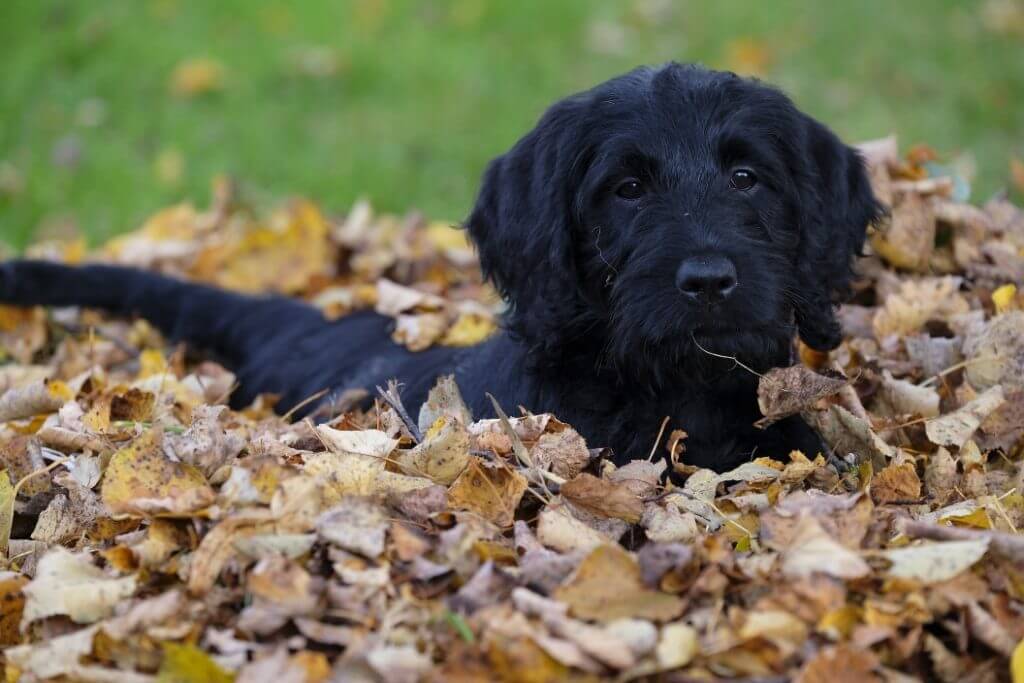
A veterinarian can estimate when your mixed breed dog may attain its full size and stop growing.
However, this can only be an estimate and not an exact figure. The key reason behind this is that their genetic background is not known.
Ensuring A Dog’s Healthy Growth
There are a number of things you need to do to ensure your dog reaches a healthy weight and size. Below are some key factors to consider:
1. Feeding
It’s important to feed your dog properly, with the proper portions and quality dog food. Bring your puppy in for regular checkups to ensure its growth is on track.
2. Neutering
In general, the medical community is in agreement that you should neuter or spay your dog before it reaches sexual maturity. More specifically, females should be spayed before their first heat cycle, and males should be neutered at 3-6 months.
3. Exercise
Puppies need exercise, but excessive or strenuous activities like jumping, leaping, agility runs or obstacles courses can be harmful if they do it before they’re fully grown. An hour of moderate exercise per day should be sufficient.
If you still have questions about when your dog will stop growing, we recommend consulting your veterinarian. Based on the breed of your dog and other relevant factors, they will be able to give you the most accurate answer possible.




Hi Kevin. What can you say about when my lab puppies will stop growing?
As medium-large dogs, labs reach full maturity in their second year, but most of their growth occurs in the first year. At around 9 months, it’ll be close to its final height. I hope this helps.